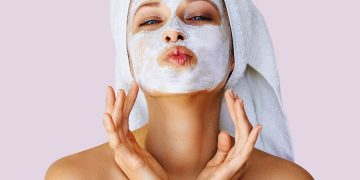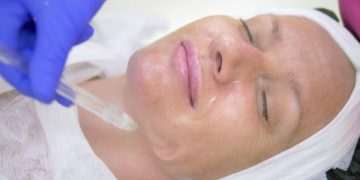Introduction
In the quest for clear, radiant skin, we often focus on external factors like skincare routines, cosmetic products, and treatments. However, in recent years, research has increasingly pointed to a key internal factor that influences skin health: mental health. It’s becoming clearer that our emotional and psychological well-being can play a significant role in the condition of our skin. Stress, anxiety, and other mental health concerns are not only affecting our minds but are also showing up on our skin in ways that can’t be ignored.
In this article, we’ll explore the connection between mental health and skin health, examine how stress and other psychological factors impact the skin, and discuss why stress management is gaining popularity as a critical part of modern beauty routines. We’ll also explore some of the most effective ways to care for your mental health to promote glowing, healthy skin.
1. The Mind-Skin Connection: How Stress Impacts Your Skin
a. Stress Hormones and Skin Breakdown
The link between mental health and skin health can be largely attributed to stress hormones, particularly cortisol. When we experience stress, our body releases cortisol, a hormone that is essential for managing the body’s fight-or-flight response. While cortisol is important for managing immediate threats, prolonged stress leads to chronic elevated cortisol levels, which can wreak havoc on your skin. Here’s how:
- Increased Oil Production: High cortisol levels stimulate the sebaceous glands to produce more oil. This excess oil can clog pores, leading to the formation of acne or breakouts, particularly around the jawline and chin, areas often referred to as “stress zones.”
- Weakened Skin Barrier: Chronic stress can impair the skin’s natural protective barrier, making it more vulnerable to irritants, bacteria, and environmental aggressors like pollution and UV rays. This results in dryness, redness, and even more severe conditions like eczema or psoriasis.
- Inflammation: Stress can trigger inflammatory responses in the body, which can manifest as skin irritation, rosacea flare-ups, or conditions like hives. Inflammation is also a known cause of premature aging, leading to the appearance of fine lines and wrinkles.
b. The Impact of Anxiety and Depression on Skin
Beyond stress, mental health conditions like anxiety and depression can also have a profound impact on your skin. Individuals with these conditions may experience:
- Increased Sensitivity: Anxiety and depression can lead to heightened skin sensitivity, making the skin more prone to conditions like rosacea, itchiness, and eczema.
- Sleep Disruption: Poor mental health is often associated with sleep disturbances. Lack of quality sleep impairs the body’s ability to repair itself, and skin becomes more prone to dark circles, puffy eyes, and a dull complexion.
- Self-Care Neglect: People struggling with mental health challenges may find it difficult to maintain regular skincare routines. This neglect can lead to skin problems such as dryness, irritation, and an overall unhealthy appearance.
2. Stress and Skin Conditions: A Closer Look
Several common skin conditions have been linked to mental health challenges, particularly stress. Let’s examine how stress affects some of the most prevalent skin issues:
a. Acne
Acne is one of the most common skin concerns linked to stress. The overproduction of oil caused by stress hormones can clog pores, resulting in the formation of blackheads, whiteheads, and pustules. Stress is especially associated with hormonal acne, which typically appears on the lower face and jawline. Moreover, people who are stressed may pick or touch their face more frequently, exacerbating acne breakouts.
b. Eczema and Psoriasis
Conditions like eczema and psoriasis are known to flare up in response to stress. Both of these conditions involve inflammation in the skin, and stress can trigger or worsen these flare-ups. Eczema leads to patches of dry, itchy skin, while psoriasis results in scaly, inflamed patches. Managing stress is key to keeping these conditions under control.
c. Rosacea
Rosacea, characterized by redness and visible blood vessels on the face, is often exacerbated by stress. This condition tends to flare up in response to emotional triggers, including anxiety or frustration. Individuals with rosacea may also notice that certain stress-inducing situations—like public speaking or stressful work environments—can cause a flare-up.
d. Wrinkles and Premature Aging
Chronic stress can accelerate the appearance of fine lines and wrinkles. High cortisol levels can break down collagen, the protein responsible for maintaining skin elasticity and firmness. As collagen breaks down, skin loses its youthful appearance, leading to sagging and the formation of premature wrinkles.
3. Stress Management as a Beauty Trend
Given the clear link between stress and skin issues, managing mental health has become an increasingly important aspect of maintaining healthy, radiant skin. Today, stress management is not just a wellness trend but an essential part of many people’s skincare routines.
a. Meditation and Mindfulness
Meditation and mindfulness practices have been shown to lower cortisol levels, reduce anxiety, and promote relaxation. Taking a few minutes each day to engage in deep breathing exercises or mindful meditation can help reduce the impact of stress on your skin.
- Guided Meditation: Apps like Headspace or Calm offer guided meditation sessions designed to reduce anxiety and encourage mental relaxation.
- Breathing Techniques: Simple practices like diaphragmatic breathing (deep belly breathing) or the 4-7-8 method can quickly lower stress and help you feel more centered.
b. Yoga and Physical Activity
Yoga and other physical exercises are not only beneficial for overall well-being but can also have a positive effect on skin health. Yoga is particularly effective at relieving stress and promoting relaxation, while also improving circulation and encouraging the release of endorphins, which can improve mood and skin appearance. Regular physical activity helps to:
- Reduce cortisol levels
- Increase blood flow, providing skin with more nutrients and oxygen
- Boost the immune system, helping to combat inflammation
c. Proper Sleep Hygiene
A good night’s sleep is essential for both mental health and skin health. Lack of sleep can disrupt the skin’s ability to regenerate and repair itself, leading to a dull complexion and other skin issues. In order to ensure better sleep:
- Establish a consistent bedtime routine
- Avoid caffeine or electronics before bedtime
- Create a calming sleep environment, such as using lavender essential oils or relaxing music
d. Aromatherapy and Relaxation Techniques
Aromatherapy has long been used to promote relaxation and reduce stress. Certain essential oils, such as lavender, chamomile, and frankincense, are known for their calming effects. These oils can be used in diffusers or applied topically (diluted in carrier oil) to help manage stress and improve overall skin health.
- Lavender Oil: Known for its calming and anti-inflammatory properties, lavender oil can help soothe both the mind and irritated skin.
- Chamomile Oil: Excellent for calming anxious feelings, chamomile also has skin-soothing properties and can reduce skin irritation.
e. Social Support and Mental Health Care
In addition to self-care practices, seeking professional support for mental health concerns can make a significant difference in skin health. Speaking with a therapist or counselor can help address underlying stress, anxiety, or depression, reducing their impact on the skin.

4. Skincare Routines for Stress-Prone Skin
Along with managing stress, it’s essential to support your skin with the right skincare products to counteract the effects of stress. A skincare routine tailored to stressed skin should focus on:
a. Gentle, Soothing Products
Opt for gentle cleansers and moisturizers that won’t strip the skin of its natural oils. Look for products containing aloe vera, chamomile, or calendula to calm the skin and reduce redness or irritation.
b. Anti-Inflammatory Ingredients
For stress-related conditions like acne or eczema, anti-inflammatory ingredients such as niacinamide, green tea extract, or centella asiatica can help soothe irritated skin and reduce inflammation.
c. Hydration and Barrier Repair
Keeping the skin hydrated is crucial for maintaining its protective barrier, especially during periods of stress. Choose products containing hyaluronic acid, ceramides, or glycerin to lock in moisture and protect the skin from external stressors.
d. Sun Protection
Stress can exacerbate skin sensitivity, so it’s crucial to wear sunscreen every day. UV damage can worsen skin conditions like rosacea and premature aging, so a broad-spectrum sunscreen with SPF 30 or higher should be a staple in your skincare routine.
5. Conclusion: A Holistic Approach to Beauty
The connection between mental health and skin health is undeniable. Stress, anxiety, and depression can have a direct and visible impact on the skin, causing a variety of issues, from acne to premature aging. As a result, stress management is quickly becoming a new trend in the beauty industry, with more and more people incorporating mindfulness, yoga, and relaxation techniques into their skincare routines.
By managing stress, focusing on mental well-being, and adopting a holistic skincare routine that emphasizes soothing, hydrating, and barrier-repairing ingredients, you can achieve both healthy skin and a balanced mind. In essence, true beauty starts from within—and addressing mental health is the key to unlocking glowing, resilient skin.












































